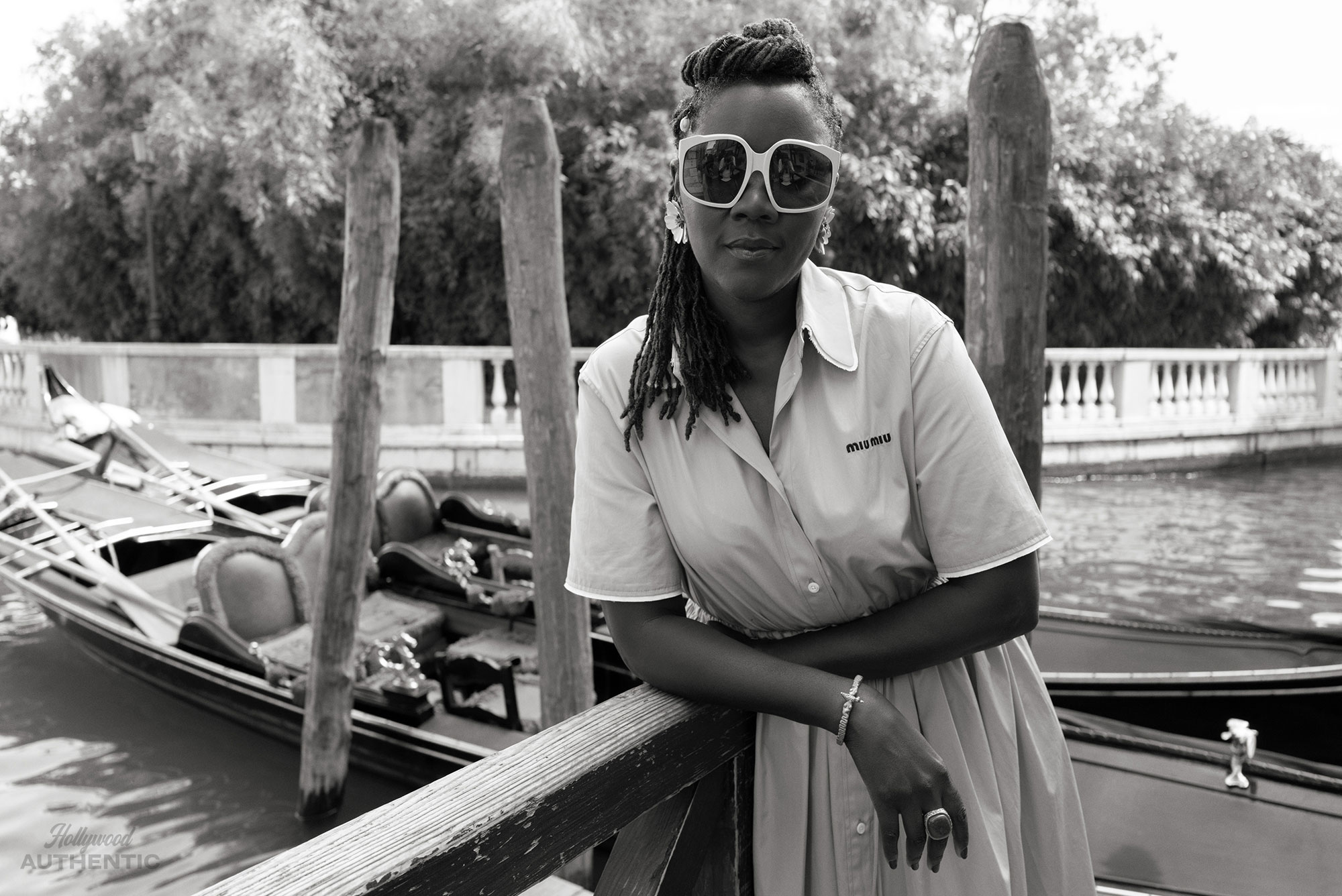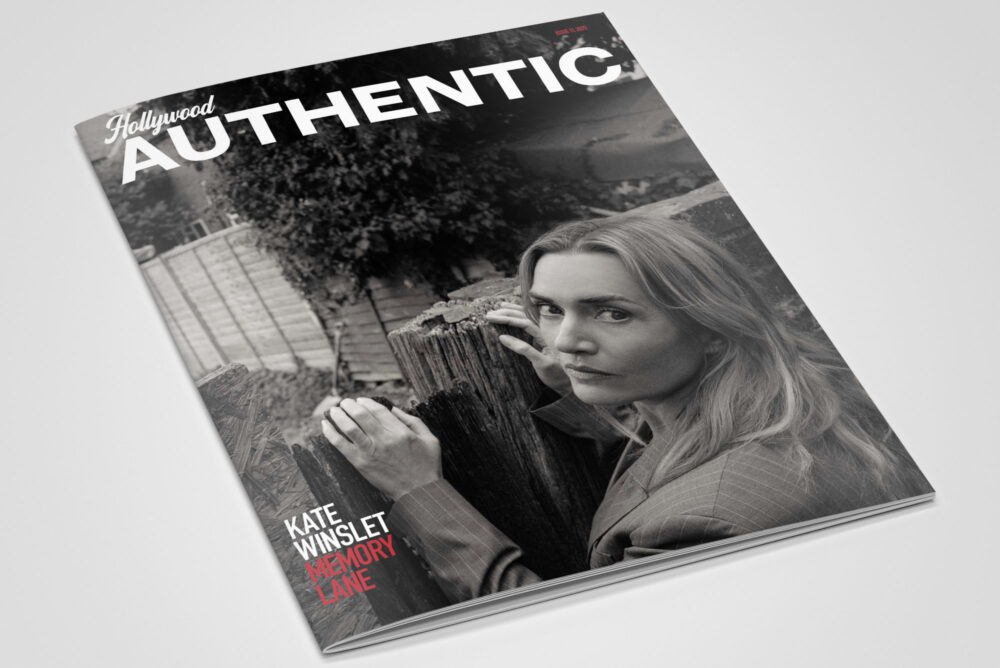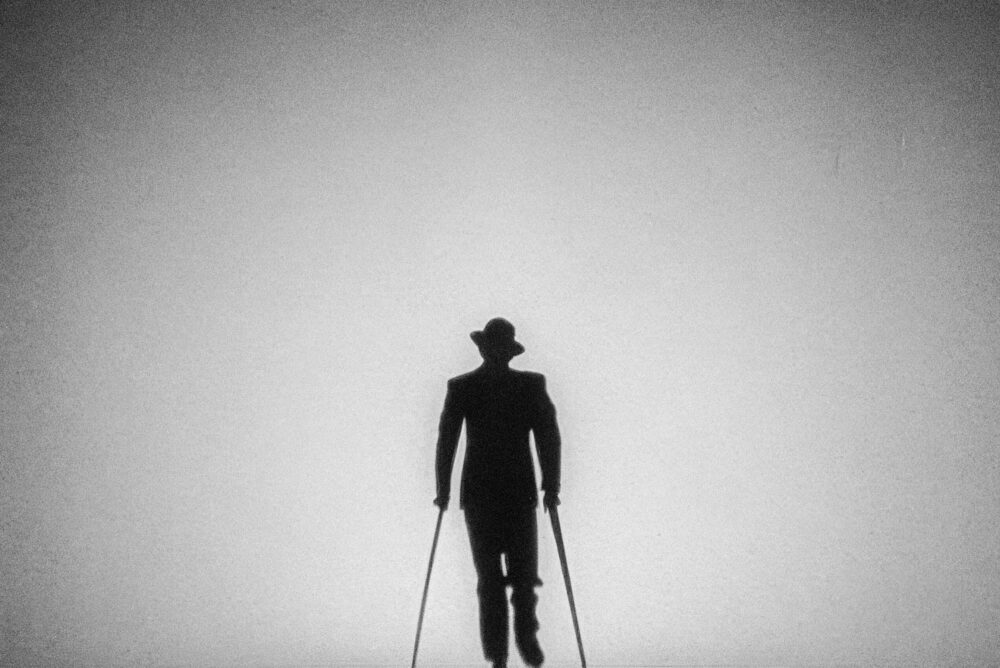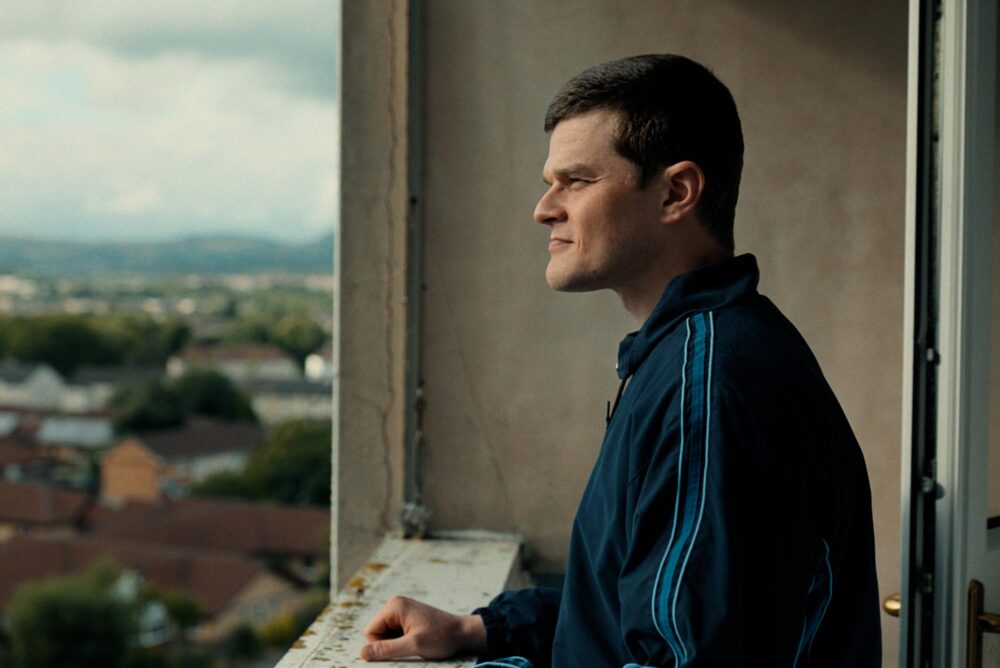
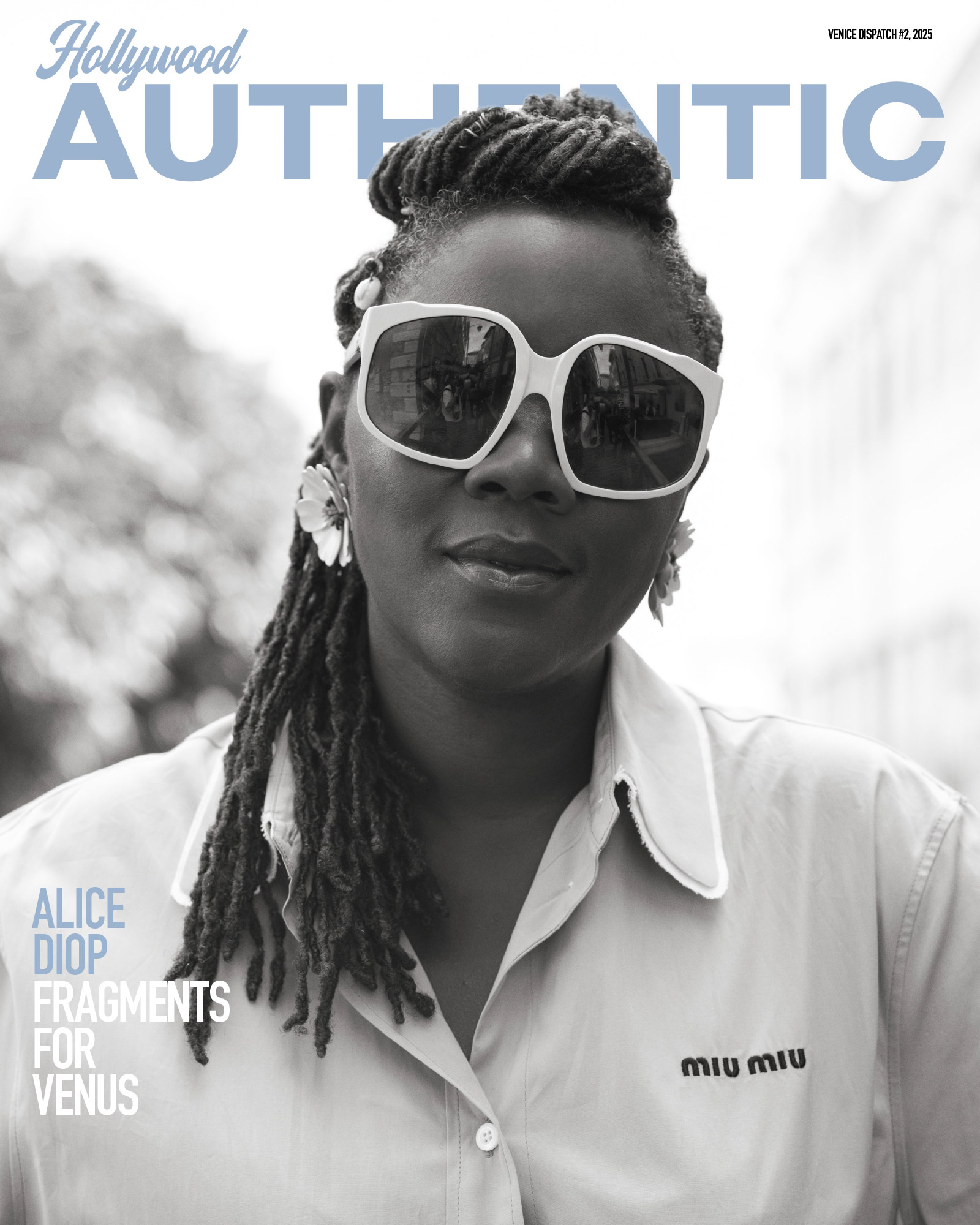
Photographs by GREG WILLIAMS
Interview by JANE CROWTHER
MIU MIU’S WOMEN’S TALES: FRAGMENTS FOR VENUS
The last time director Alice Diop presented a film in Venice with Saint Omer in 2022 she won the Grand Jury Prize and with the Luigi De Laurentiis Lion of the Future award. She was also overwhelmed. ‘It actually took years to revisit that experience, and to digest it,’ she admits over tea and biscuits in the Baglioni Hotel, perched on the Grand Canal. She returned to the Venice Film Festival to serve on the First Film jury, but this year she presents her short film, Fragments for Venus as part of Miu Miu’s twice a year Women’s Tales strand. ‘This film is as important as Saint Omer. I don’t see a difference between short films, feature films, etcetera. But the stakes are lower in that this is a film that is going to live its life. It doesn’t have to make a big splash coming into the industry. So the only stress is really whether what I’ve put into the film will be heard. The moment you let your work go, there is a lot of anxiety and fear around that. I’m certainly not in the same state that I was in with Saint Omer, which I think I was actually in a state of disassociation going into that premiere. This time, I’m welcoming the pleasure and joy of presenting a film.’
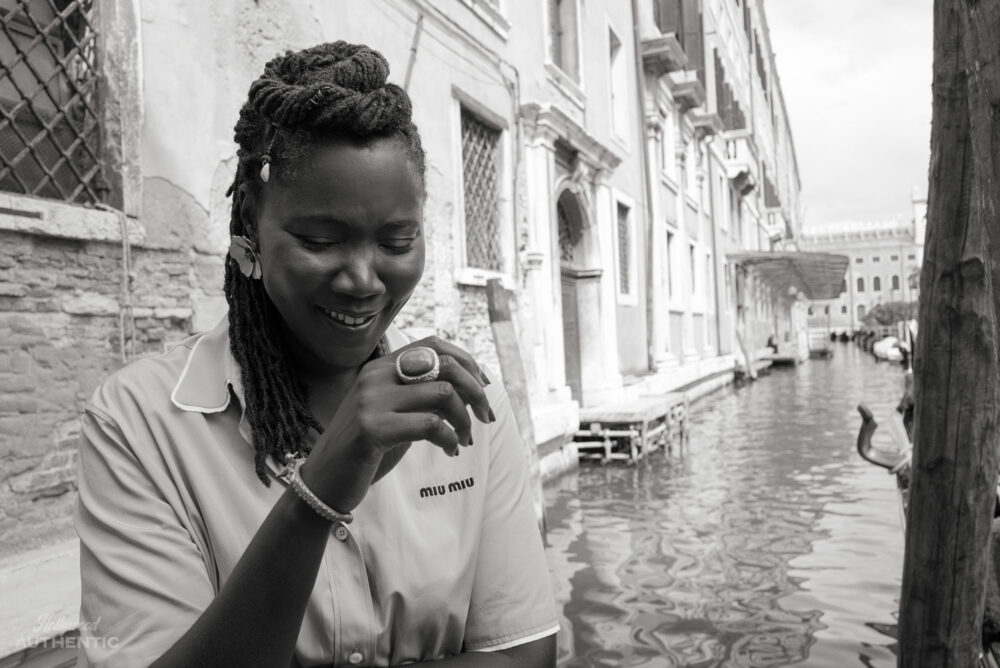
Her film explores the way the Black female form has been portrayed in worlds of art throughout history, set to the powerful poem ‘Voyage of the Sable Venus’ by Robin Coste Lewis. As the stanzas list the titles of different works of art an actress (Saint Omer’s Kayije Kagame) wanders a gallery looking at the pieces. Later, the film tracks a young poet (Sephora Pondi) as she finds inspiration in the streets of Bed-Stuy in Brooklyn. Both actors wear garments from Miu Miu, but that’s the only involvement the fashion house had in creating the project, says Diop, noting she’d been asked to participate numerous times but only found the time was right recently. ‘The only reason that I agreed to do this project is because there was absolutely no directive other than using some clothing from the latest Miu Miu collection. So it was an absolutely free commission. I had total freedom to create and think. It’s not enough for me to simply respond to a commission. To make a film, I need to be driven by an imperious necessity – a really strong desire. Eventually they came at a perfect moment where this film provided the ideal occasion to go further with things that I was reflecting on already.’
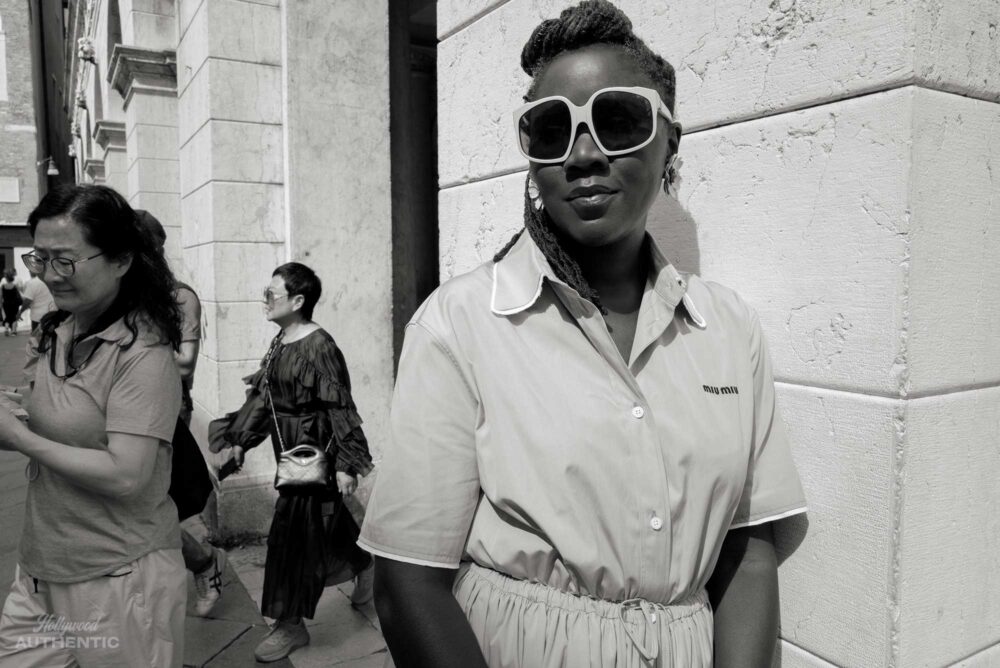
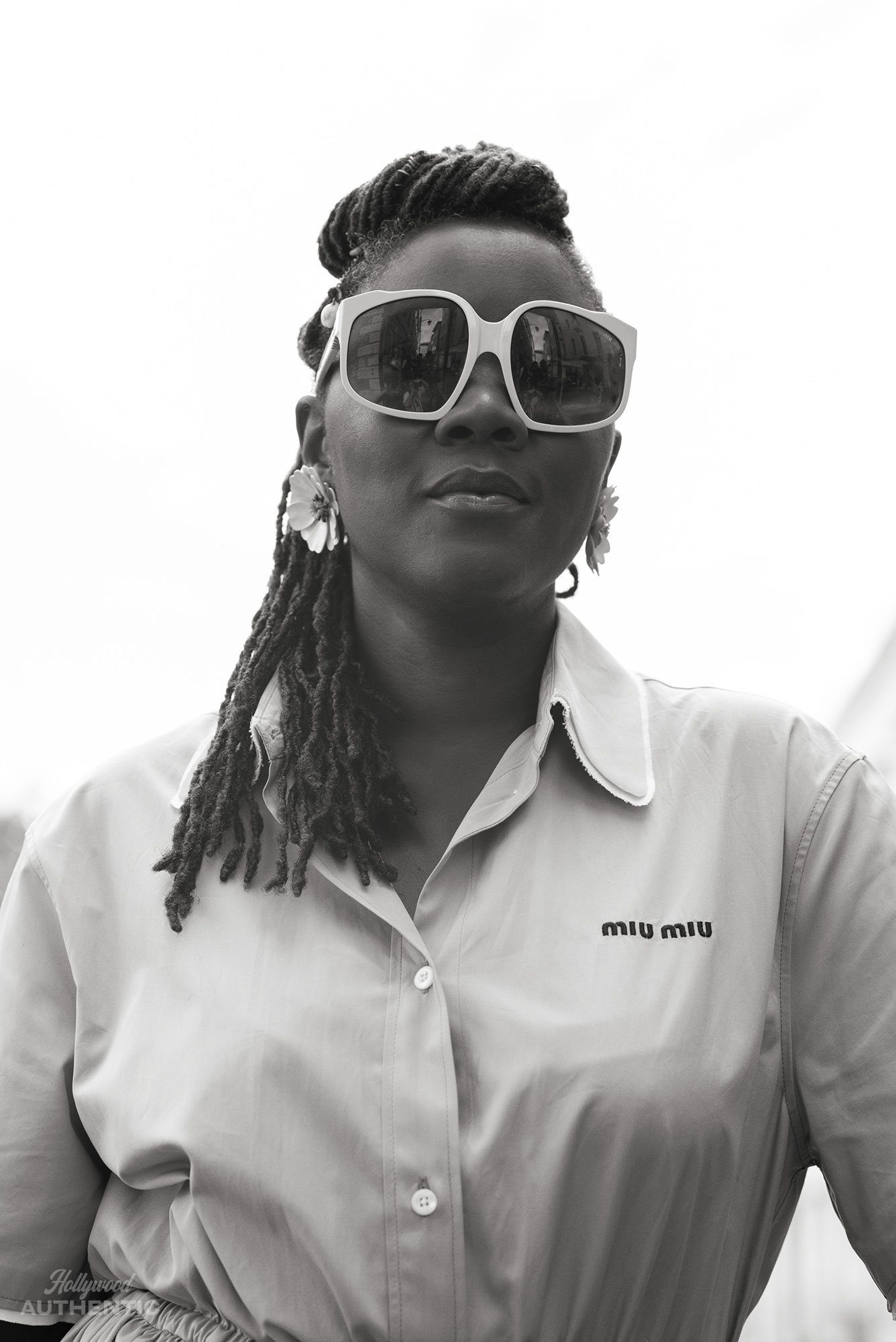
Diop worked with a translator, Nicholas Elliott, while on a residency in New York and it was he who found and translated Coste Lewis’ work for the writer/director. It was the title poem from her collection Voyage of the Sable Venus that particularly struck a chord. ‘It revisits the entire history of art and the construction of the gaze, and shows how the Black female body has been objectified and fetishised throughout that history. It’s a highly political poem and very experimental, but also very simple. And it truly was instrumental in inspiring this film which questions the representation of the Black female body, and of trying to use cinema as a way to repair the deformation of these images. Kayije’s beauty, her way of moving – in contrast to this great, classical, European art – creates meaning. And I hope it allows the viewer to see the way that we have been forced to accept a certain type of beauty, and exclude others. So to see her beauty in contrast with this art, interrogates the absence of certain beauties. As for Sephora Pondi, the power of her body, her beauty, her presence – it allows us to open up, and free the idea of the Venus, and to offer Sephora and all these women that we encounter in the streets of Brooklyn the opportunity to be Venuses.’
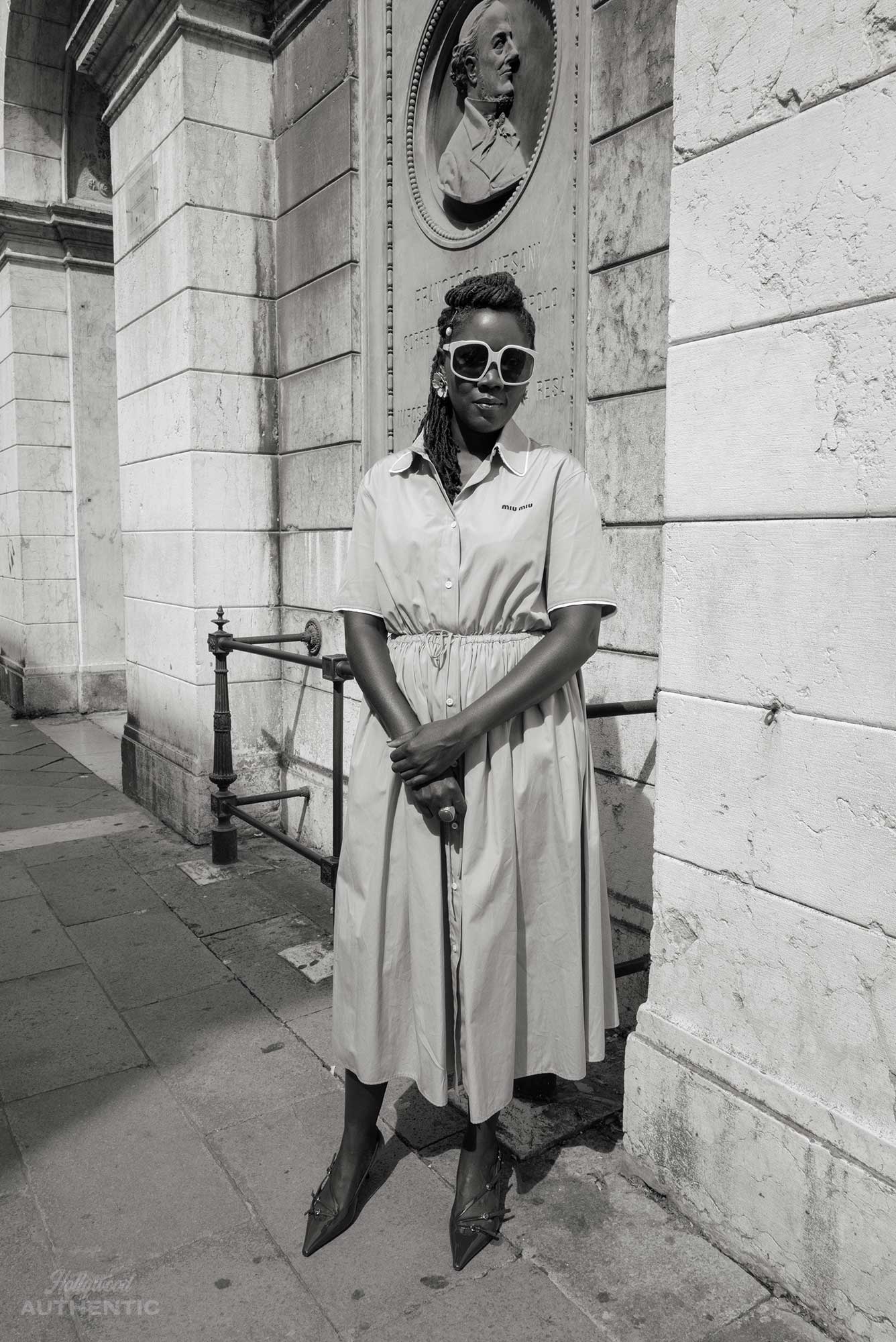
Diop has been instrumental in changing perceptions of Black women in cinema through Saint Omer – so does she feel more hopeful about the representation she is seeing in today’s art? ‘My expectation and my hope is that there will be more of us who have the means and the audience to revisit these deforming, secular visions. There aren’t many of us now. I would like for there to be more. For instance, at a major festival like the Venice Biennale, I’m not sure if there’s even one racialised filmmaker this year. There’s maybe more in the fine arts happening. Cinema still has a lot of work to do. So I’m not sure I would say that I’m confident. But, in any case, I’m hard at work, and I expect to be supported in my work by more colleagues – all of us driven by this collective effort.’ She’s currently working on a new secret project but she smiles enegmatically when asked what we might expect from it. ‘I am certainly at work, but it’s still too fragile to really talk about…’ she says as she disappears to get ready for her premiere.
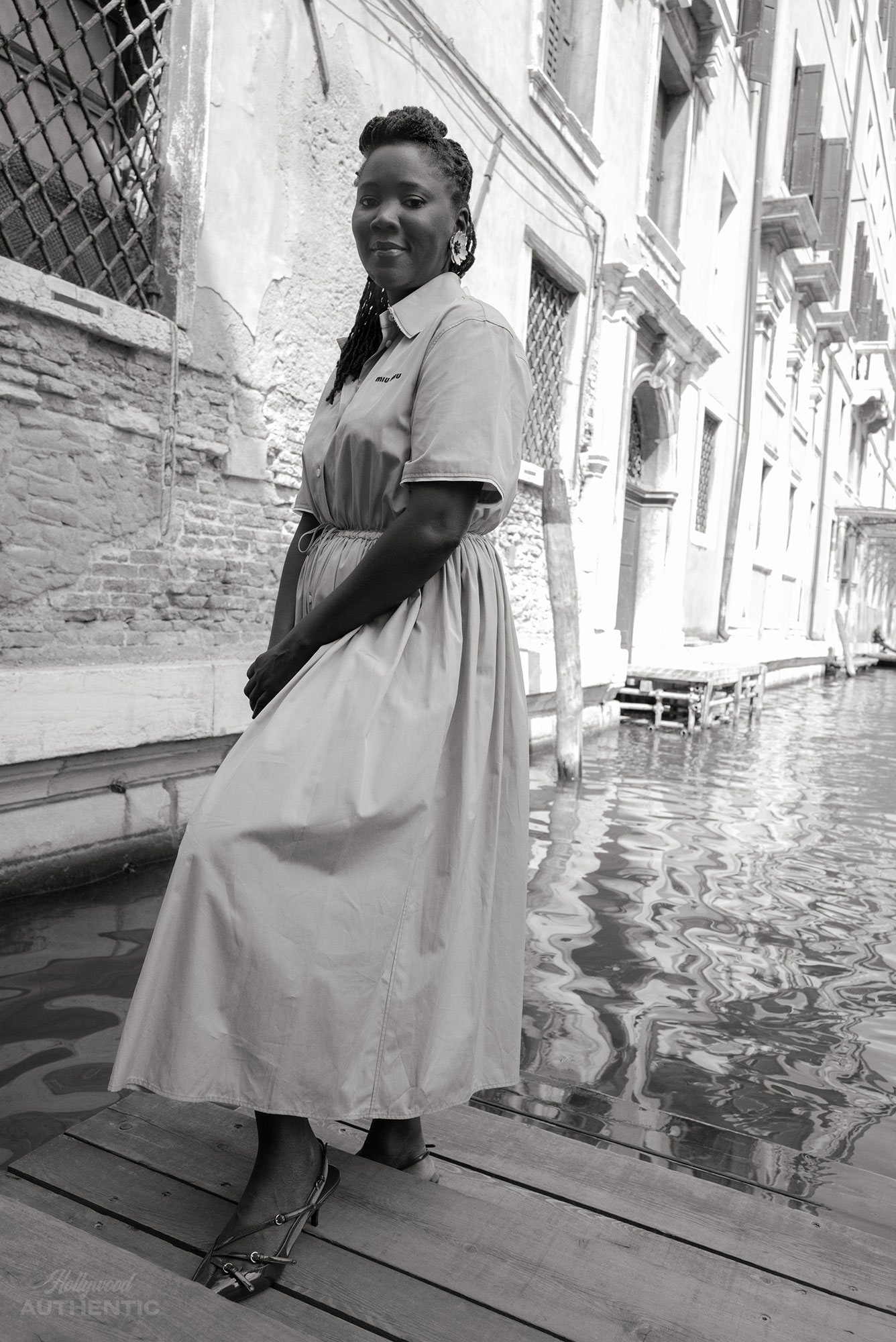
Photographs by GREG WILLIAMS
Interview by JANE CROWTHER
Women’s Tales: Fragments for Venus premiered at the 82nd Venice Film Festival
Alice Diop wears Miu Miu


